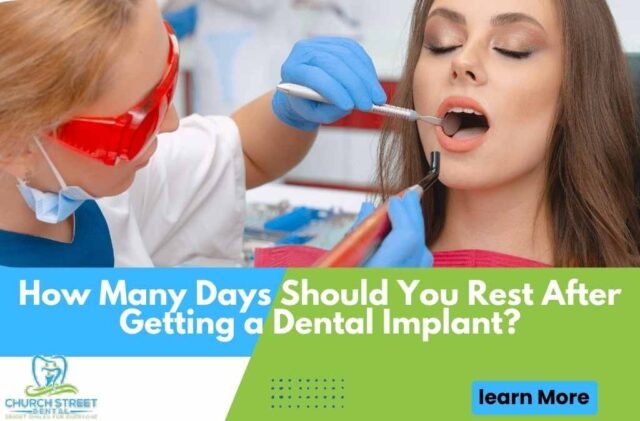Dental implants have revolutionized the field of dentistry, providing a reliable and long-lasting solution for individuals with missing teeth. Whether you’re dealing with the loss of a single tooth, multiple teeth, or even the entire set, dental implants offer a natural-looking, functional alternative to traditional dentures or bridges. In this detailed guide, we’ll explore the numerous benefits of dental implants and the different types available, helping you understand why they are often considered the gold standard in tooth replacement.
What Are Dental Implants?
Before diving into the benefits and types of dental implants, it’s essential to understand what dental implants are. A dental implant is a small titanium post that serves as a replacement for a missing tooth root. The post is surgically placed into the jawbone, where it fuses with the bone over time in a process called osseointegration. Once the implant is securely integrated, a custom crown, bridge, or denture is attached to complete the restoration.
Dental implants are an ideal option for people who have lost teeth due to injury, disease, or decay. Unlike removable dentures, dental implants are permanent and provide a stable foundation for replacement teeth, allowing for better oral health, improved functionality, and enhanced aesthetics.
The Benefits of Dental Implants
Dental implants offer a wide range of benefits that make them the preferred choice for tooth replacement. Here are some of the key advantages:
Improved Aesthetics
One of the primary reasons people choose dental implants is the aesthetic benefit. Implants are designed to look, feel, and function like natural teeth. Since they are custom-made to match the color and shape of your surrounding teeth, they blend seamlessly into your smile, improving your overall appearance.
Enhanced Comfort and Functionality
Unlike removable dentures, which can slip or shift in your mouth, dental implants are securely anchored to your jawbone, offering a level of comfort and stability that is unmatched. They allow you to speak and eat confidently without worrying about discomfort or slippage.
Since dental implants mimic the function of natural teeth, you can eat a wide variety of foods without restriction. This is a significant improvement over traditional dentures, which may limit your food choices.
Longevity and Durability
Dental implants are built to last. With proper care, they can last for 20 years or more. Unlike other tooth replacement options, such as dentures or bridges, which may need to be replaced after a few years, dental implants provide a long-term solution.
The titanium post used for the implant is highly durable and resistant to decay. Additionally, the process of osseointegration ensures that the implant is firmly anchored in the jaw, further enhancing its stability and longevity.
Better Oral Health
Dental implants help preserve your oral health in several ways. When a tooth is lost, the jawbone beneath it can begin to deteriorate due to a lack of stimulation. Implants help to stimulate the bone, preventing further bone loss and preserving the shape and strength of the jaw.
Unlike dental bridges, which require the adjacent teeth to be filed down, dental implants do not affect the surrounding healthy teeth. This means that your remaining natural teeth are not compromised, helping to maintain the integrity of your mouth’s overall structure.
Prevention of Bone Loss
One of the unique benefits of dental implants is their ability to prevent bone loss. When a tooth is missing, the jawbone in that area can begin to shrink due to the lack of stimulation from the tooth root. Over time, this can lead to changes in the facial structure and difficulty in fitting dentures or bridges.
Because dental implants are placed directly into the jawbone, they help to preserve the bone by mimicking the natural tooth root’s function. This helps maintain the structure and density of the bone in the long term.
Improved Speech
Missing teeth or ill-fitting dentures can lead to speech problems, such as slurring or difficulty pronouncing certain words. Dental implants, on the other hand, allow you to speak clearly and confidently, as they function just like your natural teeth.
Increased Self-Confidence
When you have missing teeth, you may feel self-conscious about your smile, affecting your confidence in social and professional situations. Dental implants can improve your smile and restore your self-esteem, helping you feel more comfortable and confident in your appearance.
Types of Dental Implants
There are several different types of dental implants, each designed to address specific dental needs. The main categories include endosteal implants, subperiosteal implants, and zygomatic implants.
Endosteal Implants
Endosteal implants are the most common type of dental implant. These implants are placed directly into the jawbone and are used to replace a single tooth or multiple teeth. Once the implant is placed, it fuses with the bone during the healing process (osseointegration), providing a solid foundation for the attached crown, bridge, or denture.
Endosteal implants are ideal for patients who have a sufficient amount of healthy jawbone. However, if the jawbone has been damaged or resorbed due to tooth loss, additional procedures like bone grafting may be required before the implants can be placed.
Subperiosteal Implants
Subperiosteal implants are placed beneath the gum tissue but above the jawbone. This type of implant is typically used for patients who have a severely resorbed jawbone and are not candidates for traditional endosteal implants. Subperiosteal implants do not require bone grafting, but they are less commonly used due to their limitations in providing long-term stability compared to endosteal implants.
These implants consist of a metal frame that is positioned under the gum tissue. As the gum tissue heals, the frame becomes firmly anchored to the jawbone, and posts are attached to the frame to hold the replacement teeth.
Zygomatic Implants
Zygomatic implants are the least commonly used type of dental implant. These implants are placed in the cheekbone (zygoma) rather than the jawbone, making them suitable for patients with severe bone loss in the upper jaw.
Zygomatic implants are longer than traditional implants and are anchored directly into the zygomatic bone, providing a stable foundation for replacement teeth. This type of implant is typically reserved for individuals who have not been successful candidates for other types of implants due to significant bone loss in the jaw.
All-on-4 Implants
All-on-4 implants are a type of full-arch restoration that uses just four dental implants to support a complete set of upper or lower teeth. This innovative technique allows for the immediate placement of a full set of teeth on the same day as the implant procedure, reducing the time required for healing.
All-on-4 implants are ideal for patients who need a full set of replacement teeth but do not have enough bone density for traditional implants. By strategically placing the implants at different angles, the All-on-4 technique maximizes the available bone and provides a stable and durable solution.
Mini Implants
Mini implants are smaller than traditional implants and are often used for patients who have limited bone density or who require a less invasive treatment option. These implants can be used to support a single tooth or stabilize a denture.
Mini implants are a popular choice for patients who are not candidates for standard implants due to insufficient bone volume. While they may not offer the same level of strength and stability as full-sized implants, mini implants are still a reliable option for certain situations.
Dental Implant Procedure: What to Expect
The dental implant procedure typically involves multiple stages, including consultations, surgery, and follow-up visits. Below is a general overview of what you can expect during the process:
Initial Consultation
During your initial consultation, your dentist will evaluate your oral health and determine if you are a suitable candidate for dental implants. This may involve X-rays or 3D imaging to assess the condition of your jawbone and the placement of the implant.
Implant Placement Surgery
Once you are deemed a good candidate, the implant placement procedure will be scheduled. This is usually performed under local anesthesia to ensure that you are comfortable throughout the process. The dentist will make a small incision in the gum tissue and place the titanium post into the jawbone.
Healing and Osseointegration
After the implant is placed, the healing process can take several months. During this time, the implant will fuse with the jawbone in a process called osseointegration. This is a crucial step, as it ensures that the implant will be securely anchored.
Attaching the Abutment
Once osseointegration is complete, an abutment (a connector) will be attached to the implant post. The abutment serves as a base for the custom crown, bridge, or denture that will be placed later.
Placing the Restoration
Finally, the custom restoration (crown, bridge, or denture) will be attached to the abutment, completing the dental implant process. The result is a fully functional, natural-looking replacement for your missing teeth.
Learn More: Dental Implants in Chicopee, MA
Conclusion
Dental implants offer numerous benefits, including improved aesthetics, comfort, and functionality. Whether you’re looking to replace a single tooth or restore an entire set of teeth, dental implants provide a durable and long-lasting solution that mimics the look and feel of natural teeth. With various types of implants available, there is a solution for almost every patient’s needs.
If you’re considering dental implants, it’s important to consult with an experienced dentist who can guide you through the process and help you achieve the best possible outcome.
Church Street Dental is here to help. As a leading Dentist in Chicopee, MA, we specialize in dental implants and are committed to providing high-quality care tailored to your needs.






